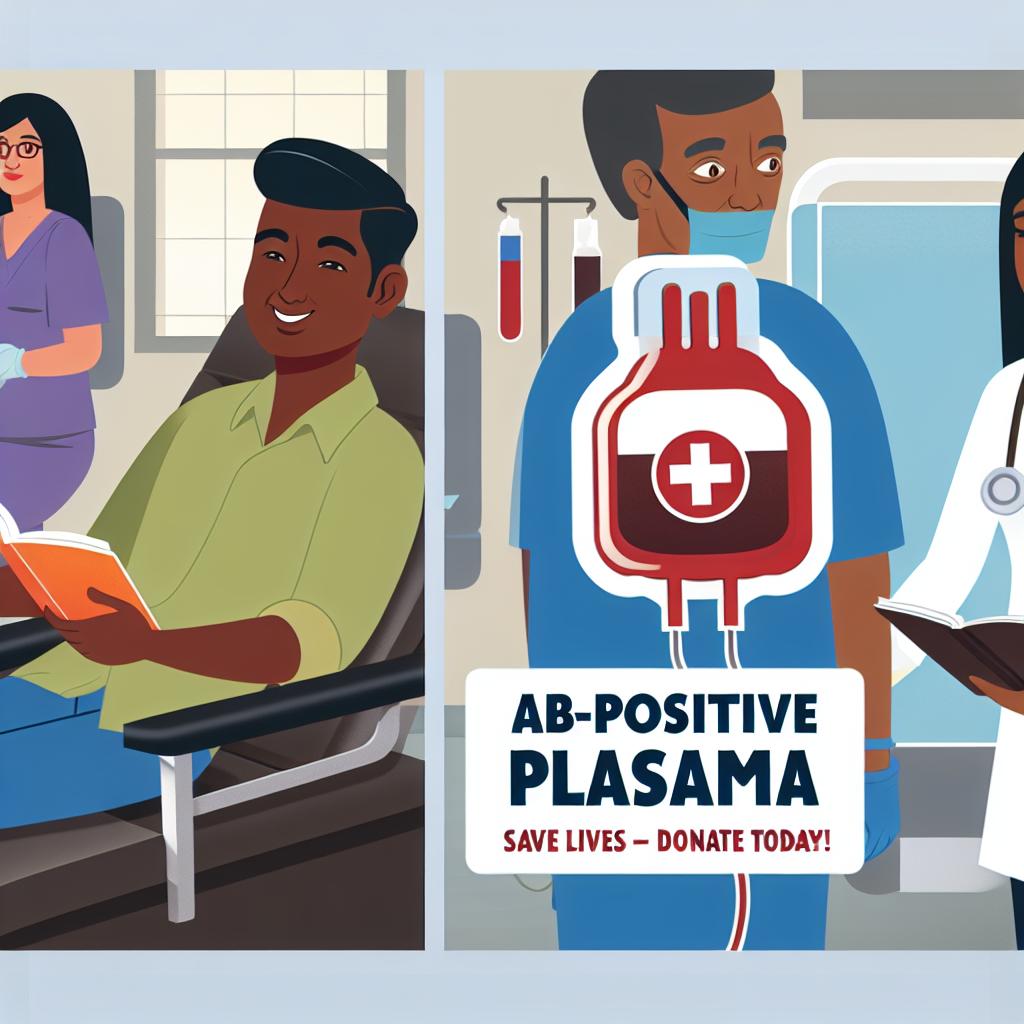The Unique Role of AB-Positive Plasma Donations
AB-positive plasma plays a critical part in the healthcare system due to its unique compatibility characteristics. Understanding its importance can encourage the much-needed donations required to meet medical demands. Through this more detailed examination, we will delve deeper into why AB-positive plasma donations are integral to healthcare and how individuals can contribute to this life-saving process.
Universal Plasma Donor: An Overview
Individuals with AB-positive blood type are known as universal plasma donors. This designation is significant because AB-positive plasma can be transfused to patients of any blood type. This makes it extremely versatile in emergency and surgical situations where quick decision-making is key. The lack of antibodies in AB-positive plasma reduces the risk of adverse reactions in recipients, thus enabling its widespread use without the need for specific compatibility testing that other blood products might require.
The Mechanism of Compatibility
The concept of universal plasma donation by AB-positive individuals centers around the absence of natural antibodies that could potentially cause agglutination or immune responses in recipients. This absence allows AB-positive plasma to seamlessly integrate into the recipient’s body, performing its necessary functions without conflict. Understanding this mechanism underscores the significant advantage and demand for AB-positive plasma, particularly in urgent medical scenarios.
Applications of Plasma in Modern Medicine
Beyond the realm of transfusions, plasma extracted from AB-positive donors plays a pivotal role in producing life-saving therapies. Plasma is a vital component of blood that contains key substances such as immunoglobulins, clotting factors, and albumin. These components are fundamental in treating various health conditions.
For example, immunoglobulins are proteins that operate as antibodies to fight infections and are used in therapies for those with immune deficiencies. Clotting factors are indispensable for patients suffering from bleeding disorders like hemophilia, a condition where blood does not clot properly due to the lack of specific proteins. Moreover, albumin is utilized to treat patients in shock or trauma situations, where stabilizing blood pressure and volume is crucial. These applications highlight the vital role that AB-positive plasma donations play in sustaining critical medical treatments and interventions.
The Scarcity of AB-Positive Donors: A Challenge to Meet Demand
Notwithstanding its immense utility, the AB-positive blood type is relatively rare, present in just about 3% of the global population. This rarity accentuates the importance of every donation from AB-positive individuals. With such scarcity, every drop of donated plasma becomes invaluable. Hospitals and treatment centers face continuous challenges to maintain adequate supplies, especially considering the potential for sudden surges in demand due to emergencies or the development of new therapeutic applications that rely on plasma components.
Strategies to Encourage and Enhance Donations
Given the universality of AB-positive plasma and the low percentage of potential donors, strategic efforts to raise awareness and encourage donations are essential. Outreach efforts can include educational campaigns that inform the public about the unique advantages of AB-positive plasma, coupled with easy access to donation centers. Individuals who are eligible and capable of donating are urged to make regular plasma donations.
Those interested can start by contacting local blood donation centers, many of which are affiliated with national organizations such as the American Red Cross. These organizations provide structured guidance on how, where, and why to donate. By becoming actively involved and spreading awareness within personal and social communities, individuals can help bridge the demand-supply gap in AB-positive plasma.
Additionally, sharing personal testimonials and stories of beneficiaries can also inspire potential donors by putting a personal touch on the scientific and procedural aspects of plasma donation.
Navigating the Donation Process
For individuals keen on exploring the process of plasma donation, understanding the procedural and eligibility criteria is vital. The primary step involves pre-donation health screening to ensure donor safety, covering aspects such as medical history and current health status. This screening helps safeguard both donor and recipient health.
Once eligibility is confirmed, the donation takes place over a relatively short period, usually about an hour, where blood components are separated, and red blood cells are safely returned to the donor. This aspect differentiates plasma donation from whole blood donation, generally minimizing donor fatigue and allowing for more frequent donations.
For a comprehensive dive into specifics, the American Red Cross website and consultation with healthcare providers serve as essential resources. They offer personalized information and support, addressing common queries and concerns that new or returning donors might have.
Conclusion
In sum, AB-positive plasma donations hold an indispensable place in modern healthcare due to their universal compatibility and unique applications. The rarity of AB-positive individuals heightens the critical need for donations to support a wide array of medical treatments and emergency interventions. Through enhanced awareness and donor engagement programs, plus transparent information on the donation process, more individuals can be encouraged to participate. This participative approach can significantly alleviate the current and emerging challenges faced by the healthcare system in ensuring a steady and reliable supply of this invaluable resource.
